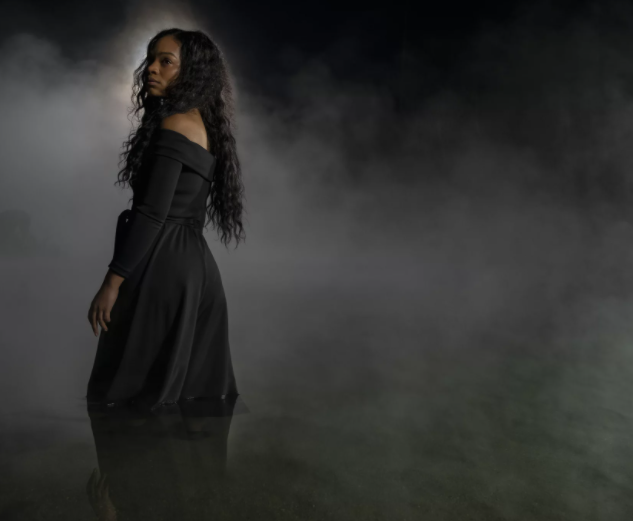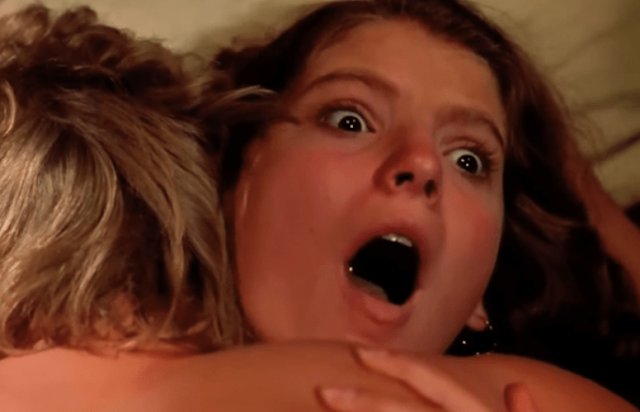How the Haunting of Bly Manor ghosts differ from those in Hill House
The second instalment of Mike Flanagan’s The Haunting anthology series, The Haunting of Bly Manor, sees a markedly different take on ghosts than the earlier Haunting of Hill House.
Bly Manor sets up
an all-new mythology for its ghostly residents, which is all part of Flanagan’s
aim to shake up the tone in the new series. While Hill House focussed on childhood trauma, Flanagan has described Bly Manor as a “Gothic romance” – which
influences the way ghosts are portrayed in the series.
Warning: Spoilers for The Haunting of Bly Manor
The origin of the haunting
We come to learn that the house itself is carnivorous,
claiming the soul of anyone who dies there. Bly Manor, on the other hand, is
not an innately evil house – the way it’s shot highlights its Gothic elegance rather
than the sinister pervasive gloom of Hill House.
The haunting itself has a more tragic, fleshed out
backstory. We learn Viola Lloyd (a black and white Kate Siegel) refused to die
when she fell ill with a terminal lung disease, existing in a living death for
five years. She is overcome with paranoia and jealousy when it looks like her
sister Perdita (Daniela Dib) is planning to steal her husband.
Perdita not only ends up marrying Viola’s widowed beau, but also ‘mercy’ kills her sibling. The final straw, however, is when Perdita attempts to nick Viola’s fancy clothes to rectify the family’s failing finances – and is strangled to death by Viola’s ghost for her troubles.
Viola’s spirit ends up hanging around Bly Manor
indefinitely, and the “gravity” of her will to live means anyone who dies on
the grounds is cursed to wander them after death too. The worst part is that
the ghosts all gradually forget who they are, causing their facial features to
melt away.
Viola ends up mindlessly wandering the house – her original
quest to find her daughter forgotten and replaced with the will to randomly
kill anyone who crosses her path.
Seeing from the ghosts’ perspective
The extremely disturbing idea that the ghosts are doomed to walk Bly Manor as faceless entities with no memory of who they were gives a convincing motivation to Peter Quint’s (Oliver Jackson Cohen) plan to possess Miles and Flora so he and Rebecca Jessel (Tahirah Sharif) can escape Bly Manor before the same fate befalls them.
Whereas a lot of the ghosts in Hill House lacked interiority
– with Poppy and William Hill just plain evil – Quint and Jessel can still be
reasonably sympathetic, despite their
hopes to steal the bodies of two small children.
We’re also privy to the way the ghosts ‘slip’ back into
their memories, struggling to manifest themselves in the present moment the
longer they’ve been dead. Quint’s torturous reliving of the moment his abusive
mother blackmails him to embezzle money from Henry Wingrave (Henry Thomas) is
enough psychological strain to explain his nefarious designs on Miles.
Coupled with the subplot about Owen’s (Rahul Kohli) mother suffering from dementia, the ghosts’ experience is similar to our very real fear of losing our own sense of self as we age. Knowing the origins of the ghosts are tied to Viola’s iron will to keep living in the face of a debilitating illness, the loss of the ghosts’ faces and memories are also tied to the heartbreaking experience of watching a loved one suffer through a long terminal illness, slowly becoming less like the person they used to be.
Significantly, while the ghosts were primarily a metaphor
for the Crains’ trauma in Hill House, it’s
the inner lives of the ghosts themselves in Bly
Manor which provide the meatiest metaphorical subtext.
Opposite endings
In Hill House, the fact that the dead can live on in eternity together had a certain ambivalence, with Mrs Dudley (Annabeth Gish) voluntarily dying in the house so her soul can live on there with her dead daughter Abigail. In contrast, the happy ending in Bly Manor comes when the spirits are finally released from Bly – either going on to some kind of afterlife or ceasing to exist at all.
While Hill House was
about letting go of traumatic memories, Bly
Manor is more about letting go of loved ones. Peter can’t let go of
Rebecca, wanting to possess her to the extent that he forces her to kill
herself so she can be with him. Miles and Flora want so much to be with their
dead parents that they give up their futures to live in their memories.
The catharsis in the final episode of Hill House is a recontextualising of the ghosts, with the
previously monstrous spectre of Nell actually saving the other Crains. In
contrast, Bly Manor sees the ghosts
will to keep on existing by any means thwarted and them all disappearing from
the grounds of Bly.
The truth that death could befall any of us at any time looms large over Bly Manor, with three core characters already dead before the action even begins. But Dani (Victoria Pedretti) and Jamie’s (Amelia Eve) bittersweet ending signals a more healthy way of dealing with our mortality.
Dani knows she is living on borrowed time, but still manages
to live five happy years with Jamie – the same amount of time between Viola
rejecting death and her eventual murder by Perdita. While Viola becomes
vengeful and monstrous, Dani takes each day as it comes and is accepting when
her time runs out.
The necessity of accepting the potential loss of those we
love is set out from the start as the thesis of Bly Manor. Owen says in the opening wedding rehearsal scene: “To
truly love another person is to accept that the work
of loving them is worth the pain of losing them.” The healthiest
relationships in the series are founded on the knowledge they could end at any
time. After all, it’s Peter’s monstrous desire to hold on to Rebecca from
beyond the grave that sets the plot of Bly
Manor in motion – and ultimately leads to Dani’s tragic death.
Fill your Twitter feed with weekly horror content. Follow us:










Comments
Post a Comment